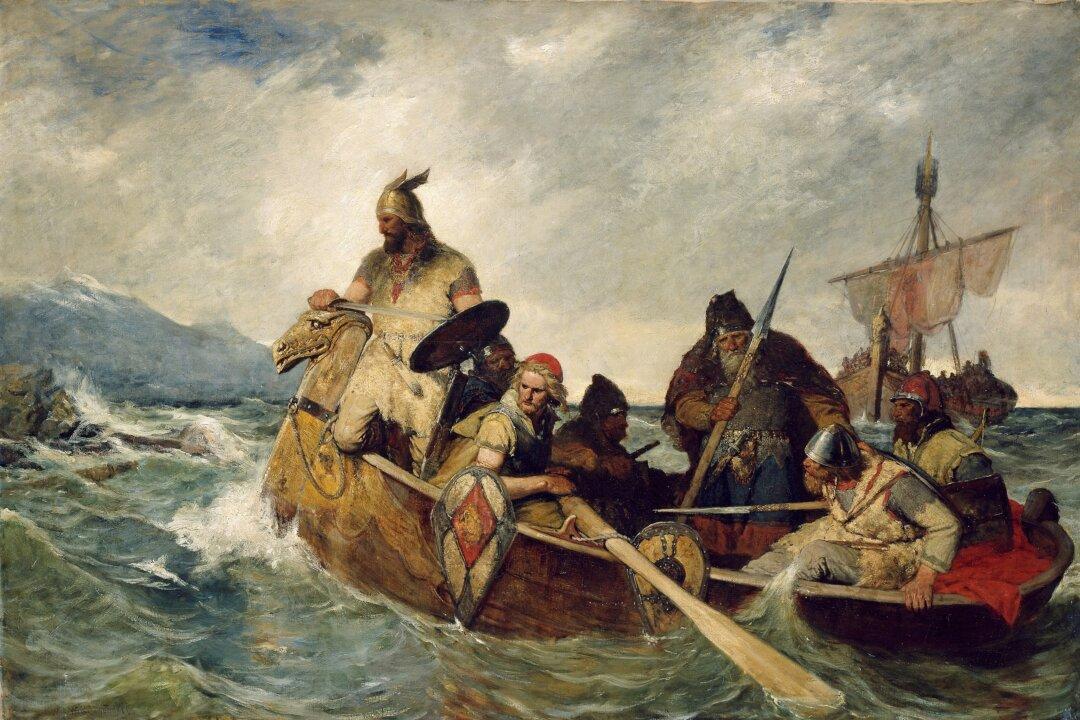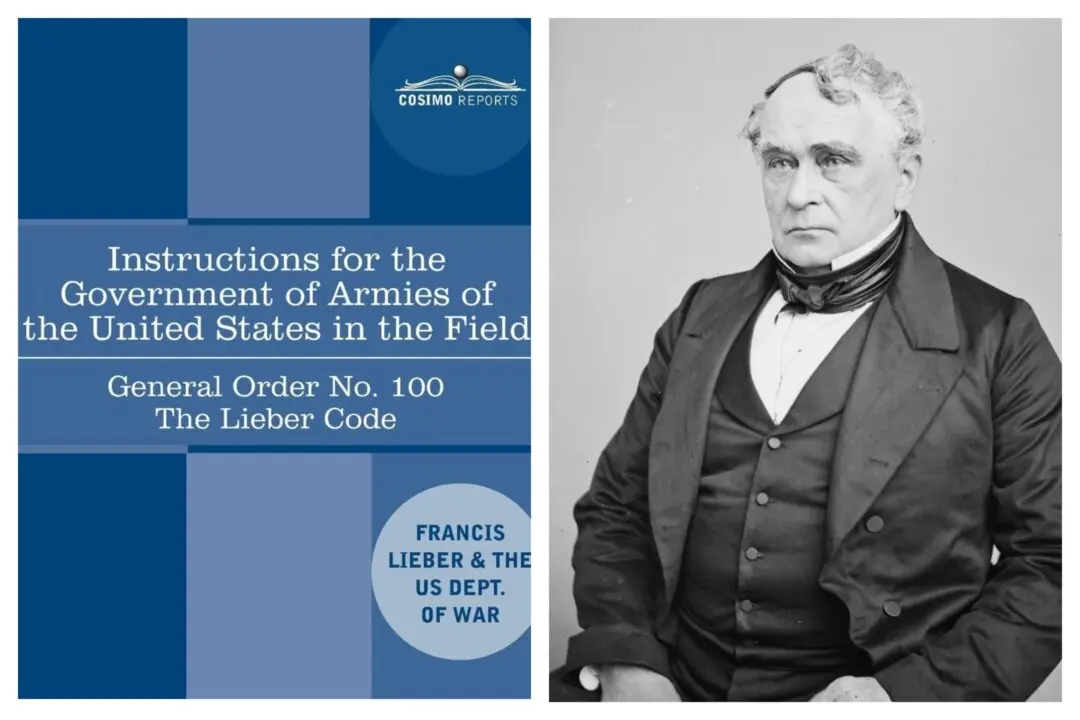The Vikings have inspired the creation of movies, TV shows, video games, and books, although that inspiration is almost always in the stereotypical sense of war, plundering, and pillaging. But aside from the stereotypes—which are stereotypical because they are true—the Vikings actually contributed to Western civilization in ways we often don’t consider.
Arthur Herman, historian and bestselling author of numerous works, including his latest, “The Viking Heart: How Scandinavians Conquered the World,” suggests that we can tie many of our customs, laws, and commercial enterprises to the Norse, along with the obvious popular culture.
The start of that cultural influence can easily be traced back to A.D. 793, when Vikings, either the Danes or Norwegians, raided a monastery off the eastern coast of England. The monks of Lindisfarne suffered brutally, but it was just the beginning of two centuries of Viking dominance. That dominance is typically noted as ending in 1066, when the last great Viking, King Harald Hardrada of Norway, was killed at the Battle of Stamford Bridge—a battle that ensued shortly before the Battle of Hastings, where William the Conqueror of Normandy defeated, and therefore dethroned, King Harold Godwinson of England.
“It is an era ripe with violence, wars, and pillaging,” Herman said during an interview on “The Sons of History” podcast. “Not just Vikings against their neighbors, but among the Vikings themselves, among the different Scandinavian tribes.”
Political Impact
Herman quickly pointed out that these tribes of warriors weren’t led by warlords or tyrants, but that their leaders were actually democratically elected. Well before the Vikings stormed the shores of England, they had been practicing a form of democracy.
“They were very much what we would call today ‘self-governing,’” he said.
He explained that the chieftains and kings were elected by a tribal assembly called “The Thing”―termed among the Norse as “Althing.” The term is still used today in Iceland, which was founded as a Norwegian colony. In fact, the practice of Althing continues to this day.
“The line of succession has remained pretty much the same,” Herman said. “The participation of voters has gotten bigger. Women as well as men vote. But the idea that those who govern you are responsible and accountable to you, and that their authority relies on your consent, that’s part of the Viking way. It’s part of Viking politics.”
The historian noted that the Vikings didn’t leave their democratic tradition in Scandinavia. They brought it with them wherever they landed, and they ended up in many places throughout Europe and the Mediterranean.
“The Vikings leave a long-standing impact in England on political thinking in terms of land settlement, laws, customs, and language,” he said. “The direct line from our Anglo-Saxon ideas about democracy to the Viking tribal assembly is a long, but very discernible and impactful, one.”






